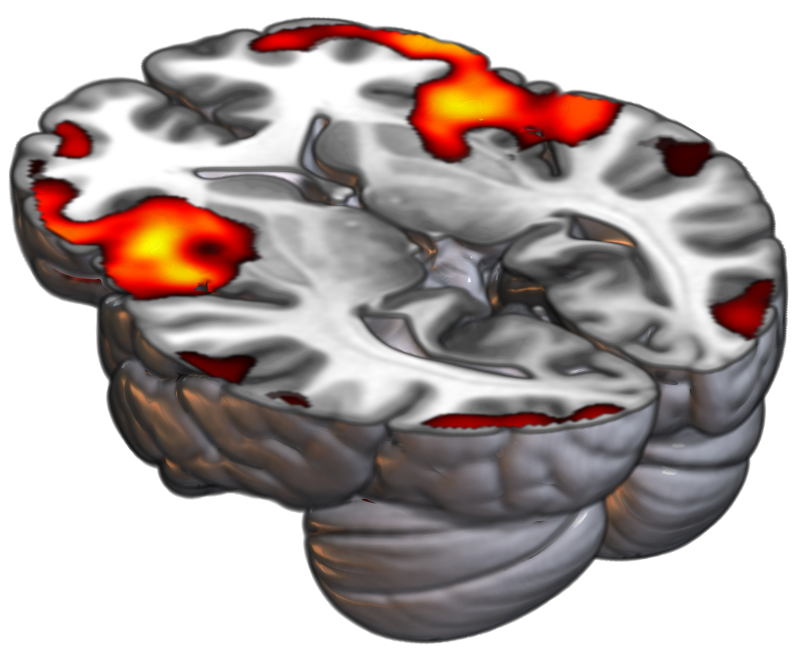Limited benefit from supporting executive functions is one explanation for why older adults with hearing loss experience difficulties understanding speech in noise. In Brain Structure and Function we described an study examining the responsiveness of cortical regions to environmental (visual) cues that signaled changes in listening conditions. Older adults with relatively limited high-frequency hearing loss appeared to prepare for changes in listening difficulty from one trial to the next based on cingulo-opercular activity that differed between listening conditions when an informative cue was presented compared to when an uninformative neutral cue was presented. This effect diminished with increasing high-frequency hearing loss, poorer set-shifting task performance, and lower frontal operculum gray matter volume (as shown here). Proactive strategies for engaging a cingulo-opercular network that supports adaptive control may be important for older adults with high-frequency hearing loss to optimize speech recognition in changing and challenging listening conditions.
Listening Difficulty Cueing in Older Adults with Hearing Loss
